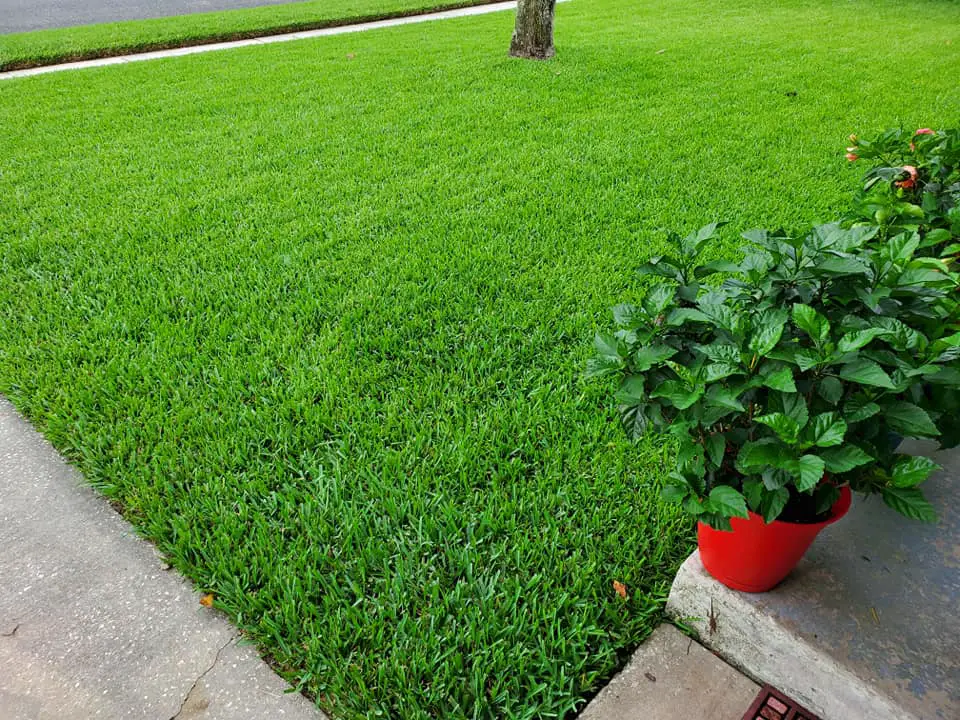St. Augustine grass is a popular warm-season grass and is often regarded as one of the best grasses for lawns in southern areas like Florida and nearby gulf states. It boasts lovely blue-green leaves and has a spreading or creeping growth habit that forms dense mats. Although a relatively low-maintenance grass tends to need less mowing than other lawn grasses, St. Augustine grass needs weed control to prevent common weeds like broadleaf and grassy weeds from infesting your healthy lawn. Learn how to control weeds in order to maintain the health and beauty of St. Augustine grass lawns.
Broadleaf Weeds in St. Augustine Lawns
The most common broadleaf weeds in St. Augustine lawns are white clover, dollar weed, broadleaf plantain, henbit, and chickweed. Because of their thicker leaves, broadleaf weeds are generally easier to spot than grassy weeds, which means you may be able to eradicate them before they have a chance to spread. Although it’s possible to perform weed control for these common weeds without chemical control, it’s extremely difficult to eradicate these pesky weeds once they gain a foothold in your St. Augustine grass or other lawn grass.
Grassy Weeds in St. Augustine Grass
Some of the most common grassy weeds that plague St. Augustine lawns include Bermudagrass, poa annua, crabgrass, and dallisgrass. Identifying the types of weeds growing in your St. Augustine lawn will help you choose the best weed killer for eradicating them. There are many herbicides, so you want to take care to select the proper ones for your lawn and the weeds you’re targeting. The problem with grassy weeds like Bermuda grass is that they can blend in with your grass quite easily for a time until there are so many that they ultimately become impossible to miss.
Weed Prevention in St. Augustine Grass
The best way to control weeds in St. Augustine lawns is to prevent them from growing in the first place. The difficulty arises when one realizes that St. Augustine grass thrives on sunlight, water, and soil, just like Bermuda grass, poa annua, white clover, and other specific weeds we’ve mentioned. A healthy lawn is the best defense against the most common weeds. Good lawn care such as regular mowing, irrigation, and fertilizing will help you to maintain a lush, healthy lawn and prevent a lawn weed from taking root.
Mowing helps to prevent weeds by removing the seed head from weeds before it can sprout and spread. However, be sure to remove grass clippings from your lawn to prevent seed heads you just moved from sprouting into weeds. If you’re serious about cultural methods of weed control, you may also want to avoid hiring a lawn care service that may inadvertently spread seed heads from other yards onto yours. It’s unlikely that lawn care companies will clean their mowers and other equipment before mowing your lawn. Common weeds like crabgrass and dollar weed can easily spread this way.
You can also prevent weeds by applying a pre-emergent herbicide on your St. Augustine lawn. Pre-emergent herbicides kill weeds before they grow in your soil. Ideally, you should apply a pre-emergent herbicide on your St. Augustine grass lawn during the early spring or when temperatures reach above 55 degrees Fahrenheit. Try a pre-emergent herbicide such as Prodiamine to kill weeds like dollar weed and white clover before they grow in your St. Augustine grass.
How to Kill Weeds in St. Augustine Grass
A post-emergent herbicide will kill weeds that are already growing in your St. Augustine lawn. However, be careful about which post-emergent herbicides you choose as St. Augustine grass and centipede grass, in particular, can be sensitive to the chemicals used in many of these weed killers. The active ingredients in some post-emergent weed killers will harm your St. Augustine grass. Read instructions carefully for whichever weed killer you happen to select to ensure that it’s safe for your St. Augustine grass.
Post-emergent weed killers containing the active ingredient Atrazine should be safe to apply on St. Augustine grass and should help you maintain good weed control. You can apply post-emergent weed killers on your St. Augustine grass any time of the growing season when you notice weed growth has occurred.
Weed Control for St. Augustine Grass FAQs
Why does my St. Augustine grass have weeds?
No lawn is completely immune from weeds. St. Augustine grass is vulnerable to many types of common weeds like Florida pusley and crabgrass. Mow and apply fertilizer regularly to maintain your healthy lawn, which is the best defense against weeds. Common weeds in St. Augustine grass can spread more easily to unhealthy lawns.
What kills weeds in St. Augustine Lawns?
To kill weeds in your St. Augustine grass lawn, choose pre-emergent or post-emergent weed killers–whichever suits your lawn care regimen best. Pre-emergent weed killers will help you prevent weeds, while post-emergent weed killers are best for weeds that are already growing in your St. Augustine grass.
Can St. Augustine grass choke out weeds?
St. Augustine grass can choke out weeds when it is healthy and growing to form a dense lawn. Even so, weeds like crabgrass can be tenacious. You may need to apply a weed killer to eliminate them from your lawn. Be sure that the active ingredient in your weed killer is safe for St. Augustine grass to avoid a negative impact for your lawn.

